According to Article 3(a) of the "Protocol to Prevent, Suppress and Punish Trafficking in Persons, especially Women and Children, supplementing the United Nations Convention against Transnational Organised Crime" (Palermo Protocol), trafficking in persons (TIP) is defined as –
"the recruitment, transportation, transfer, harbouring or receipt of persons, by means of the threat or use of force or other forms of coercion, of abduction, of fraud, of deception, of the abuse of power or of a position of vulnerability or of the giving or receiving of payments or benefits to achieve the consent of a person having control over another person, for the purpose of exploitation, which shall include, at a minimum, the exploitation of the prostitution of others or other forms of sexual exploitation, forced labour or services, slavery or practices similar to slavery, servitude or the removal of organs ."
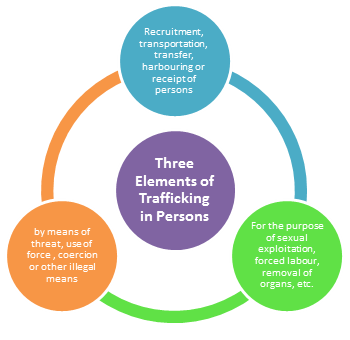
Although there is no sign that Hong Kong is being actively used by syndicates as a destination or transit point for TIP, or that TIP is a prevalent or widespread problem in Hong Kong, the Hong Kong Special Administrative Region (HKSAR) Government attaches great importance to combatting TIP. We have put in place a package of effective and comprehensive legislative and administrative measures to combat TIP with continuous enhancements, including, among the others –
Hong Kong addresses TIP through various pieces of local legislation. The conduct of TIP as defined in the Palermo Protocol is covered and effectively prohibited by various pieces of legislation in Hong Kong, mainly including the following six aspects:
- Crimes Ordinance (Cap. 200) prohibits TIP to or from Hong Kong for the purpose of prostitution; harbouring another person or exercising control or direction over another person for the purpose of that person’s prostitution or that that person shall do unlawful sexual acts with others; and any person from procuring another person to become a prostitute or cause prostitution of that person in Hong Kong or elsewhere. It also prohibits other crimes including rape, procuring another person by threats to do unlawful sexual acts with others and criminal intimidation. Moreover, there are provisions under the Crimes Ordinance that provide extra-territorial effect against certain sexual offences committed against children outside Hong Kong, including related arrangements and advertisements, making them punishable in Hong Kong;
- Human Organ Transplant Ordinance (Cap. 465) prohibits commercial dealings in human organs;
- Prevention of Child Pornography Ordinance (Cap. 579) prohibits printing, making, producing, reproducing, copying, importing or exporting, publishing and possessing child pornography;
- Immigration Ordinance (Cap. 115) prohibits arrangement for an unauthorised entrant to Hong Kong and employing illegal workers;
- Employment Ordinance (Cap. 57) imposes criminal liability on employers involved in non-payment, under-payment of wages or delay in payment of wages, failure to grant rest days and statutory holidays to employees; and
- other relevant ordinances which prohibit such crimes as assault, forcible taking or detention of persons with intent to sell him or her, child abduction, deception and blackmail, etc.
The most serious penalty for the above offences is life imprisonment. This ‘multiple-legislation’ approach provides law enforcement agencies (LEAs) and prosecutors with more flexibility in investigating and prosecuting TIP cases.
To enhance prosecutors’ awareness of TIP and forced labour, the Prosecution Code published in 2013 by the Department of Justice (DoJ) introduced a new paragraph on "Human Exploitation Cases", with the aim and purpose of providing guidance to prosecutors as to what may amount to TIP and exploitation as well as the proper approach to be adopted in cases involving these elements. A new chapter on "Human Exploitation" is further added to the Prosecution Manual 2017 for the purpose of providing guidance to prosecutors on TIP issues.
To ensure the effective implementation of anti-TIP work and heighten public awareness of TIP, the Government has established in March 2018 a high-level Steering Committee, chaired by the Chief Secretary for Administration, with the Secretary for Security and Secretary for Labour and Welfare as the vice-chairmen and relevant department heads as members. The Steering Committee will offer strategic steer in respect of tackling TIP and enhancing the protection of FDHs; formulate and monitor the full implementation of the " Action Plan to Tackle Trafficking in Persons and to Enhance Protection of Foreign Domestic Helpers in Hong Kong![]() " (the Action Plan
" (the Action Plan ![]() ); and ensure the provision of adequate resources to the relevant bureaux and departments for the effective implementation of the Action Plan
); and ensure the provision of adequate resources to the relevant bureaux and departments for the effective implementation of the Action Plan![]() .
.
Inter-departmental co-operation is crucial for combating TIP. There are established mechanisms for the inter-departmental co-operation in this regard –
- At the policy level, an Inter-departmental TIP Working Group (TIP Working Group), led by the Security Bureau (SB) and comprising the Customs and Excise Department (C&ED), DoJ, Immigration Department (ImmD), Labour Department (LD), Hong Kong Police Force (Police), and Social Welfare Department (SWD), was established in 2010 to enhance enforcement strategy against TIP. The Working Group monitors the overall situation of TIP and formulates the overall strategy for combating TIP in Hong Kong;
- In 2016, a "Guideline on Inter-departmental Cooperation for the Handling of Suspected Cases of Trafficking in Persons" was issued to provide guidance for the TIP Working Group departments/bureaux on the general principles and procedures on the inter-departmental cooperation in the identification and handling of potential TIP cases; and
- At the operational level, the Inter-departmental Joint Investigation Team (JIT), set up in 1998, enables intelligence exchange and joint investigation / cooperation on TIP activities in day-to-day operations. Police, C&ED, ImmD and LD are standing members of the JIT. The JIT meets regularly to discuss the current trends in TIP, monitor case statistics and law enforcement initiatives to combat the crime.
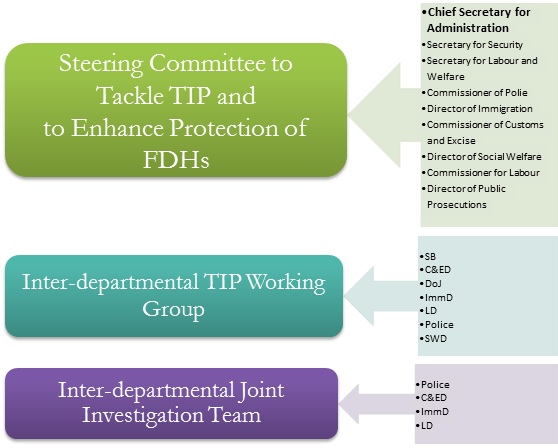
"The Action Plan to Tackle TIP and to Enhance Protection of FDHs in Hong Kong ![]() ", promulgated in March 2018, presents a package of our multi-faceted measures that are comprehensive, strategic and targeted, covering victim identification, investigation, enforcement, prosecution, victim protection and support, prevention and partnership with different stakeholders.
", promulgated in March 2018, presents a package of our multi-faceted measures that are comprehensive, strategic and targeted, covering victim identification, investigation, enforcement, prosecution, victim protection and support, prevention and partnership with different stakeholders.
The Action Plan ![]() underlines the HKSAR Government’s determination to tackle TIP and to enhance protection of FDHs working in Hong Kong.
underlines the HKSAR Government’s determination to tackle TIP and to enhance protection of FDHs working in Hong Kong.
The HKSAR Government first introduced a TIP victim screening mechanism in 2015 in the ImmD. The mechanism was then gradually implemented by the Police in some police districts in 2016 and 2017, and also by the C&ED in 2017. In July 2018, the Police further extended the mechanism to all 24 police districts and C&ED extended to all formations. Police has appointed dedicated teams to handle cases relating to TIP.
Under the mechanism, Police, ImmD or C&ED officers will conduct screening and identification on those vulnerable persons who are arrested or who put themselves forward to the authorities with a view to ascertaining whether they are TIP victims to ascertain whether they are TIP victims.
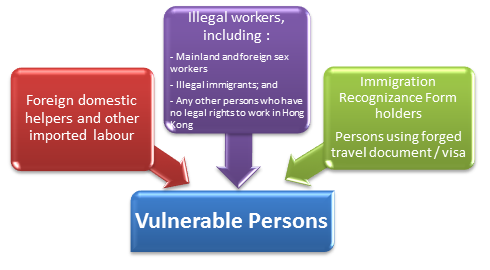
Tier 1 – Initial Screening
To assess whether the circumstances surrounding the vulnerable person indicates a possible TIP scenario, law enforcement officers will conduct initial screening by using the 7 trafficking indicators as a guide after all normal enquires.
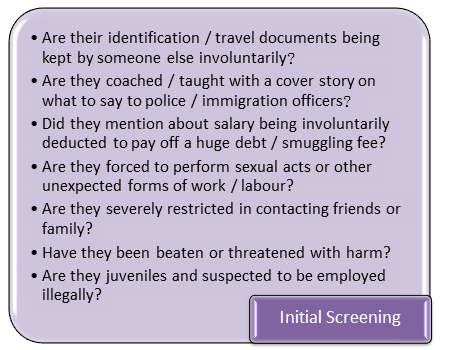
Tier 2 – Full Debriefing
Should one or more of the answers to the indicators is "Yes", the officer should proceed to conduct full debriefing on the subject vulnerable person. Law enforcement officers will ask the subject a set of standard questions, to establish whether the subject person is genuinely a TIP victim.
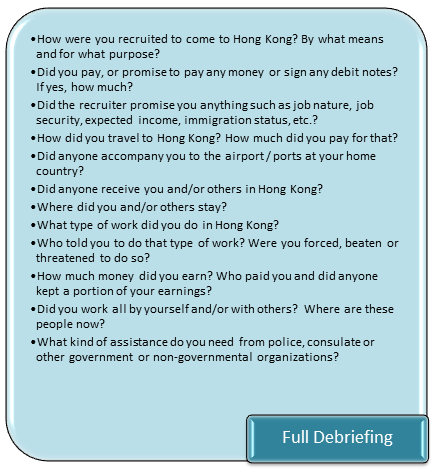
After investigation officers finished all the questions, they should be able to assess whether the subject vulnerable person is TIP victim. Criminal investigation will be commenced if subject is identified as TIP victim.
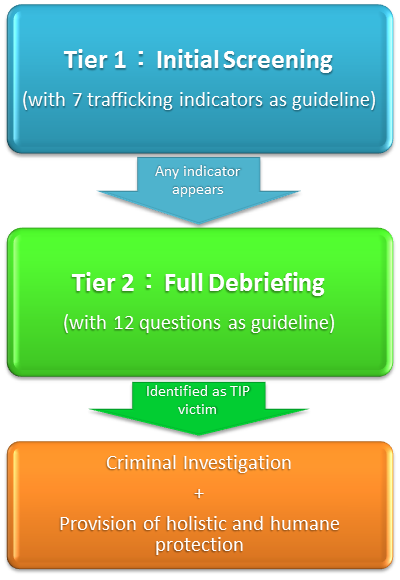
Protection for Victims
Identified TIP victims will be provided with holistic and humane protection, including –
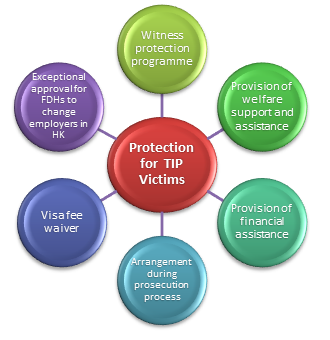
- Witness protection programme: when appropriate and when the situation so warrant, the Police will activate witness protection programme to protect the victims who are concerned about their personal safety.; they would also request overseas LEAs for assistance to victims and families in their home country when necessary;
- Provision of welfare support and assistance: the victims will be provided with the necessary support and assistance in a timely manner, including the provision of shelter, medical services, psychological support, counselling and financial assistance, etc. Where necessary, SWD will assist to assess the welfare needs for the victims and provide them with the appropriate services;
- Provision of financial assistance: departments concerned may consider providing financial assistance to victims residing overseas to enable them to return to Hong Kong to testify as witnesses. The assistance covers expenses incurred during their stay in Hong Kong, including accommodation, passage, daily subsistence and visa processing fees, etc.;
- Consideration of proper arrangements during prosecution process: departments concerned bring TIP cases to the attention of the Prosecutions Division of DoJ promptly, so that a timely and proper assessment of the issue, including the question of immunity, can be made by DoJ;
- Visa fee waiver: ImmD grants visa extension and waives the visa fees for victims who need to stay in Hong Kong to act as prosecution witnesses in legal proceedings instituted by the Police, ImmD or LD; and
- Exceptional approval for FDHs to change employers in Hong Kong: ImmD may also consider granting exceptional approval for FDHs to change employers when there is evidence suggesting that they are being exploited or abused by their employers.
We will continue to provide necessary protection and suitable assistance to victims in need, as well as support for them to act as witness in legal proceedings and facilitation for their return to their home country.
Training on anti-TIP is offered to the officers of LEAs, LD, SWD and prosecutors of DoJ, etc. Government officials from SB, DoJ, Police, ImmD, LD, C&ED and SWD received local / overseas anti-TIP training. Relevant LEAs have included the theme of TIP into their induction training for all officers.
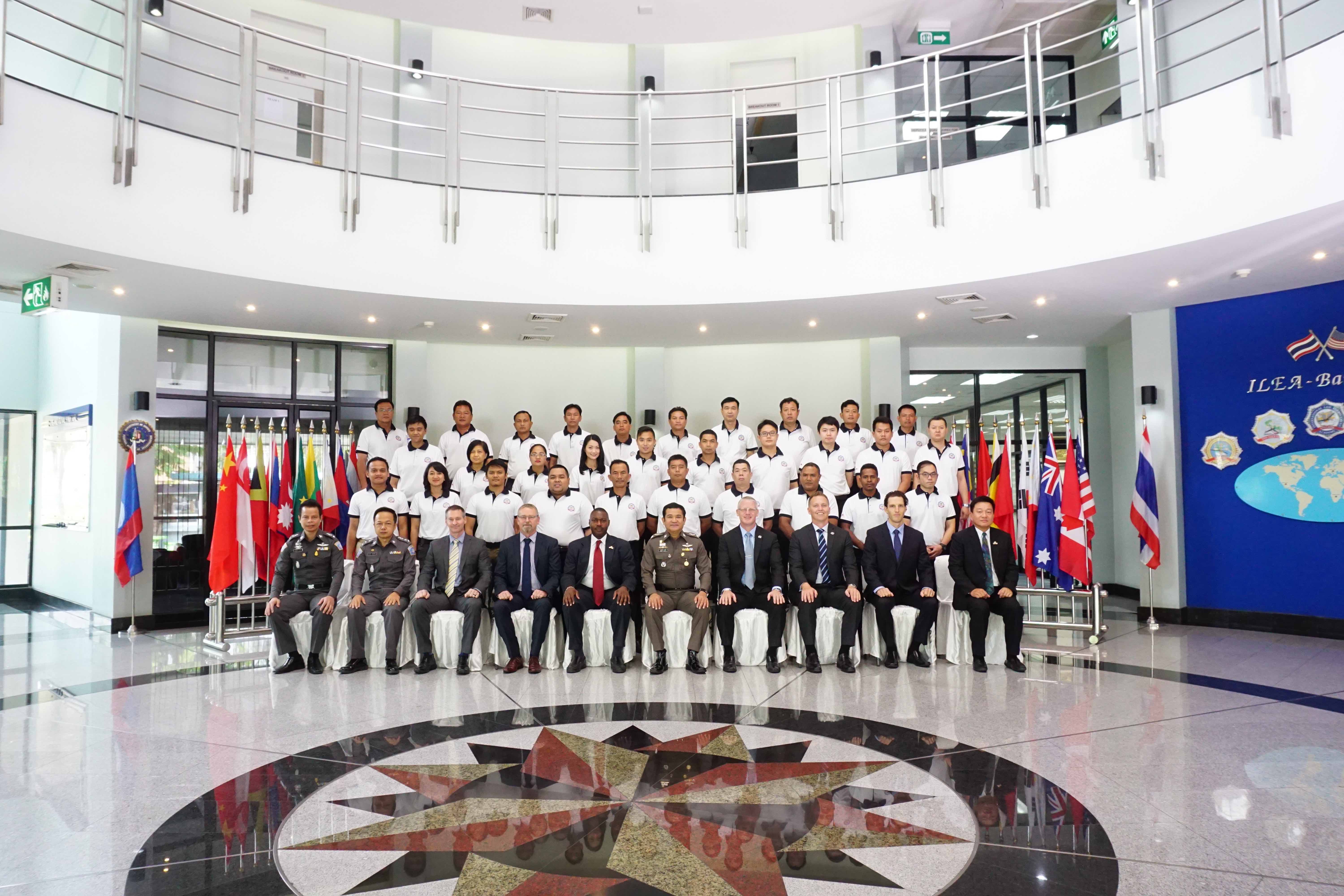
In addition, since early 2024, the Government has been organizing sharing sessions on combating TIP for frontline staff members at the Hong Kong International Airport who have constant interactions with inbound and outbound travelers. The sessions enhanced participants’ awareness and ability to identify potential TIP victims and equipped them with knowledge of how to seek assistance if they come across potential TIP victims.
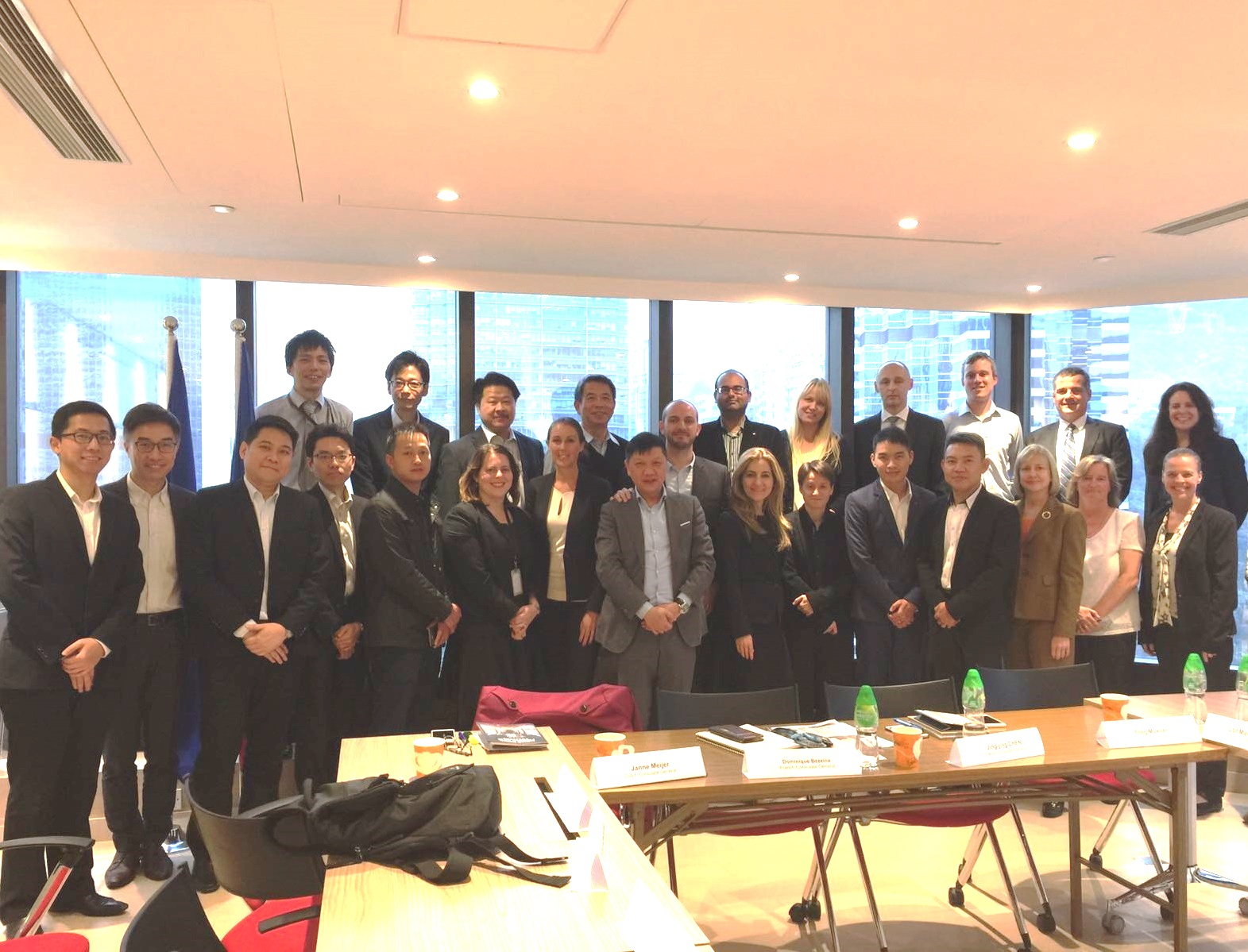
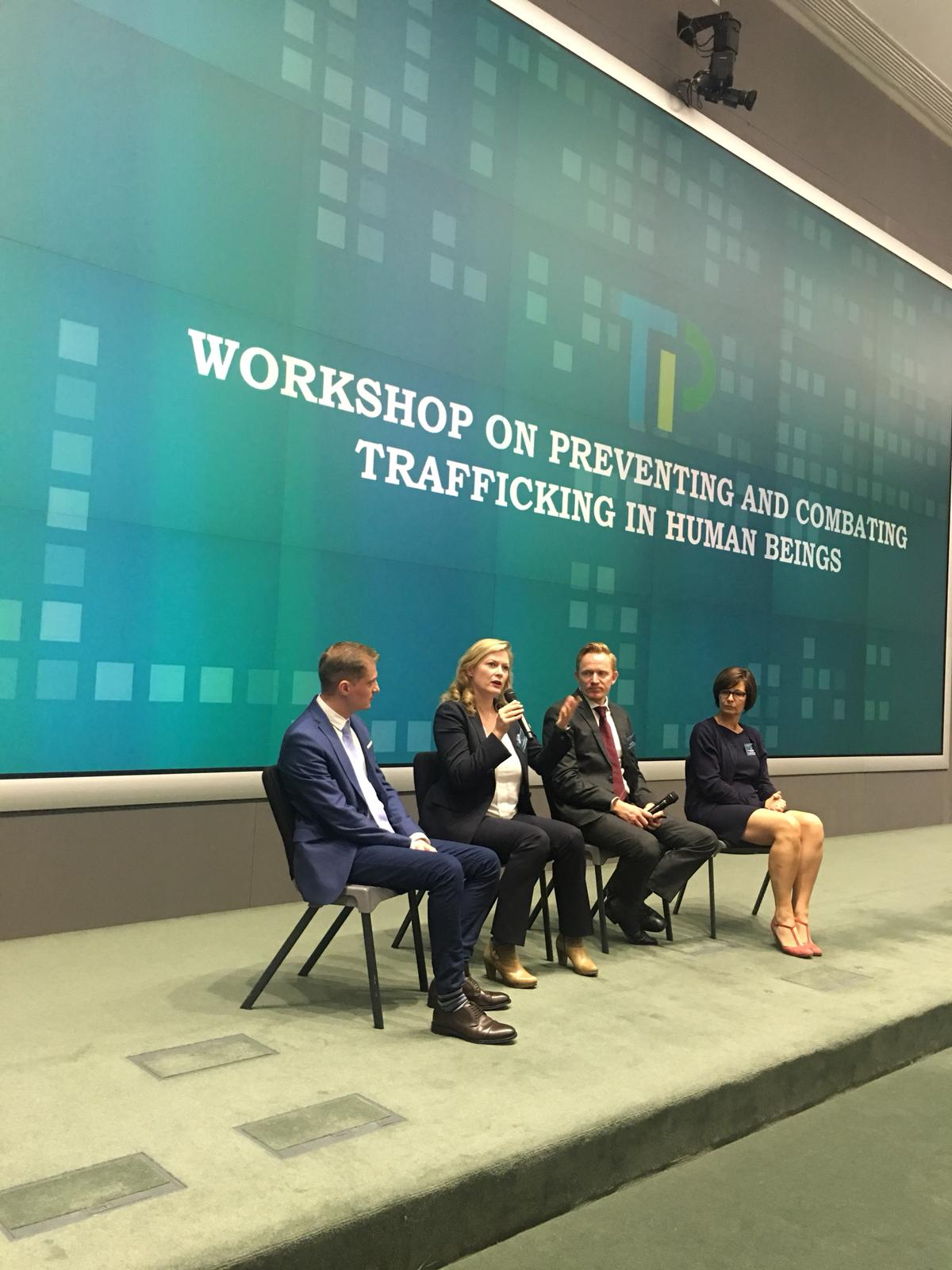
We fully understand that TIP cannot be tackled by the HKSAR Government alone, and we must work closely with the civil society, other sectors of the community and other governments. For example, we will seek to foster closer partnership with other countries to address problems that cannot be resolved by Hong Kong alone. LEAs will engage with their overseas counterparts on joint-investigation and intelligence sharing. We will also continue to maintain close liaison with foreign consulates in Hong Kong, as well as to actively participate in international conferences and workshops to share experience on the best practices to combat TIP and to share TIP-related intelligence and experience.
 Some publications below are in Portable Document Format (PDF).
Some publications below are in Portable Document Format (PDF).Viewing and printing of them can be done through the use of the Adobe Acrobat Reader

